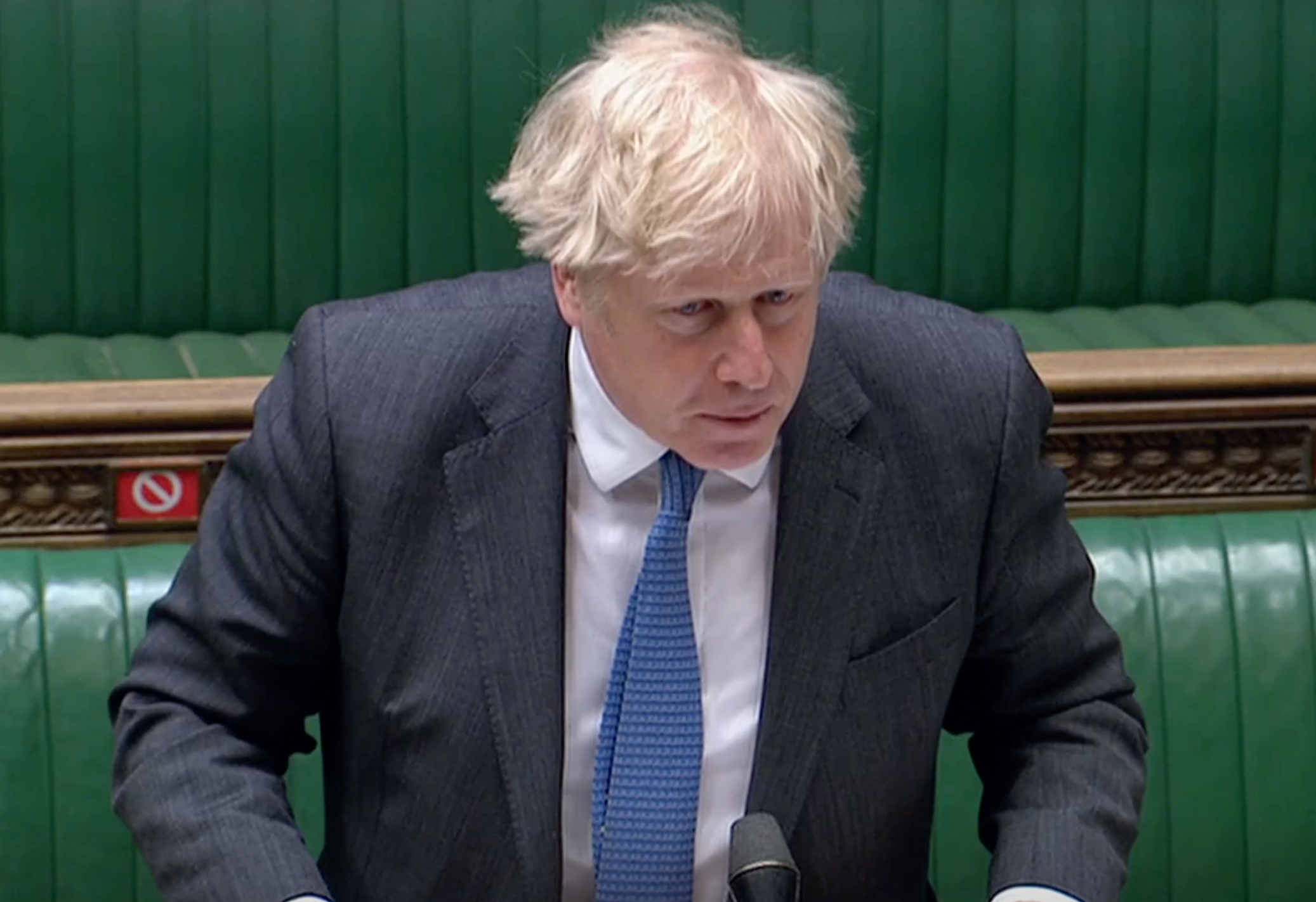Boris Johnson needs to be at the centre of improving the failing standards in government
Ministers should publish information about their correspondence with outside groups on government business, and fines should be levied for ministers caught lobbying within five years of working in government


Your support helps us to tell the story
From reproductive rights to climate change to Big Tech, The Independent is on the ground when the story is developing. Whether it's investigating the financials of Elon Musk's pro-Trump PAC or producing our latest documentary, 'The A Word', which shines a light on the American women fighting for reproductive rights, we know how important it is to parse out the facts from the messaging.
At such a critical moment in US history, we need reporters on the ground. Your donation allows us to keep sending journalists to speak to both sides of the story.
The Independent is trusted by Americans across the entire political spectrum. And unlike many other quality news outlets, we choose not to lock Americans out of our reporting and analysis with paywalls. We believe quality journalism should be available to everyone, paid for by those who can afford it.
Your support makes all the difference.A row over the lobbying activities of a former prime minister and ambitious financier has now engulfed Whitehall and Westminster. It has spiralled into questions about who has the prime minister’s phone number and how government manages the line between government business and personal contacts.
For all the benefits of getting private sector experience and know-how into government, it is clear that the rules governing the interactions between government and business need an overhaul.
More transparency is needed, along with proper powers to enforce the rules. The Institute for Government today sets out the steps that decision-makers need to take.
Firstly, though, it is important to note that Boris Johnson has already ducked one chance to improve how standards in public life are enforced. He announced on Wednesday that Lord Geidt, the former private secretary to the Queen, will become his new independent adviser on ministerial interests.
The post had been vacant for nearly six months, since Sir Alex Allan quit in November 2020 when the prime minister disagreed on whether home secretary Priti Patel had broken the ministerial code.
It is good that the post has been filled, but the prime minister has not been brave enough to increase his adviser’s independence. Like his predecessors, Lord Geidt must have the PM’s permission to investigate any potential breach of the ministerial code. He will also not be able to publish the results of any of his investigations, but will have to wait for the PM to sign them off.
While Lord Geidt will have a busy first few weeks investigating the row over how renovations to Johnson’s No.10 flat were paid for, his appointment is a missed opportunity for the prime minister to show that he really cares about trust and transparency in government.
There are other things the prime minister can do if he wants to rebuild confidence in his government. Ministers should be made to publish, and quickly, information about all their meetings – and emails, calls and text messages – with outside groups on government business.
While the current ministerial code says meetings on official government business will be published regularly, health secretary Matt Hancock’s meeting with Lex Greensill – a meeting arranged by David Cameron – does not appear in the published list from the Department of Health. Even the information that is published often comes many months after the fact. Rapid publication of information on all meetings and contact with external groups to discuss government business would provide greater reassurance that ministers are not being unduly pressured by private sector interests.
Secondly, potential conflicts of interests of civil servants also require far more transparency. It is not just ministers who have been at fault. Most famously, Bill Crothers was working for Greensill while also being head of government procurement. There is nothing inherently wrong with civil servants having other financial interests, but government departments should publish information on any potential conflicts of interest held by its most senior officials, so that cases like Crothers’ can be avoided in the future.
Permanent secretaries, who run government departments, should be held to account by the Civil Service Commission, the body that safeguards the impartiality of the civil service, to ensure they are enforcing the rules properly.
Finally, the rules also need to apply after people leave government. The current rules ban former ministers and senior officials from lobbying government for two years after they leave. But this is too short. Former Cabinet ministers (particularly prime ministers) should be banned from lobbying for organisations who might gain financially for an extended period of five years – and this ban must be properly enforced.
At present the organisation in charge of overseeing the rules, the Advisory Committee on Business Appointments (ACOBA) can only write sternly-worded letters to those former ministers who do not comply with it. While the ACOBA chair, former minister Lord Pickles, says that embarrassment can be a useful sanction, but naming and shaming does not worry every former minister – including, of course, the prime minister, who did not comply with the rules when he left Theresa May’s government, instead returning to his paid role as a columnist at theDaily Telegraph. ACOBA should be able to levy fines, based on the salary that a minister receives from their post-government jobs. Maybe then ministers will think twice about how their actions after leaving office will affect their legacy and reputation.
Taken together, these changes will help improve standards in public life while still allowing useful exchange between the public and private sector. But it is up to the prime minister to bring about these changes and make sure they stick. Having been at the centre of stories about how standards in government are failing, Boris Johnson now needs to be at the centre of fixing the problem.
Tim Durrant is associate director at the The Institute for Government (IfG)
Join our commenting forum
Join thought-provoking conversations, follow other Independent readers and see their replies
Comments